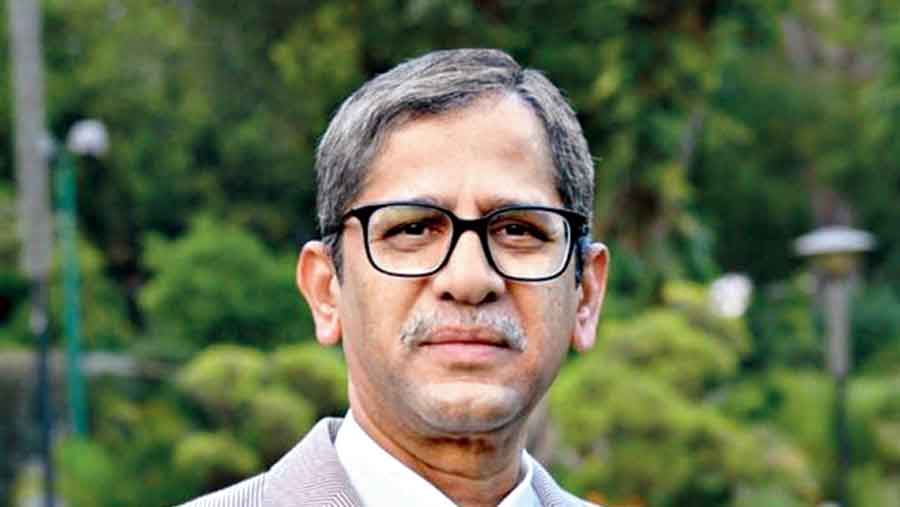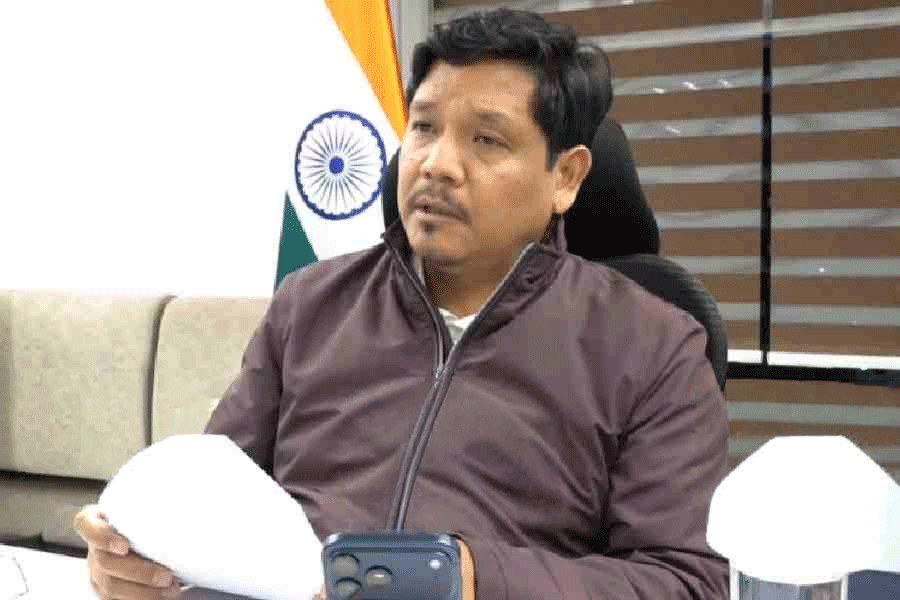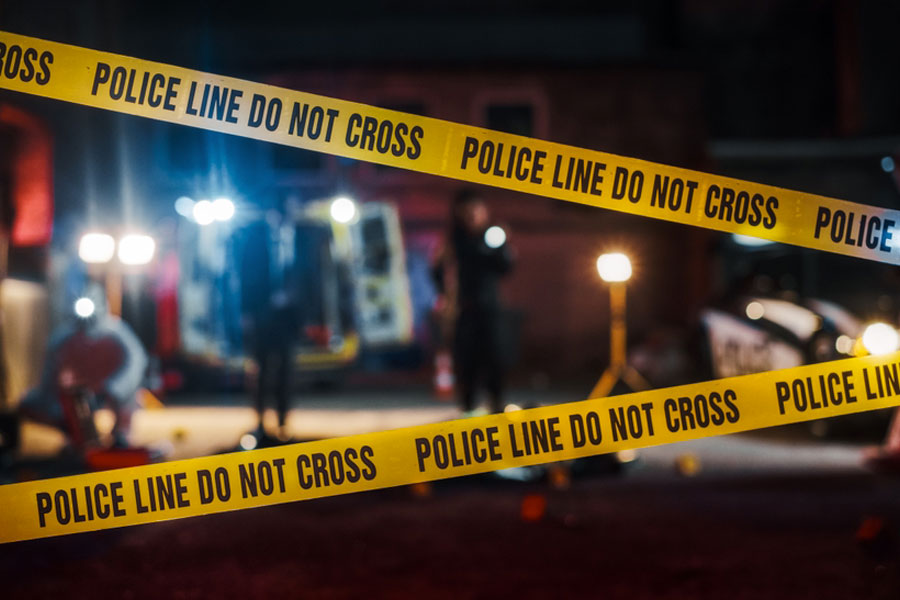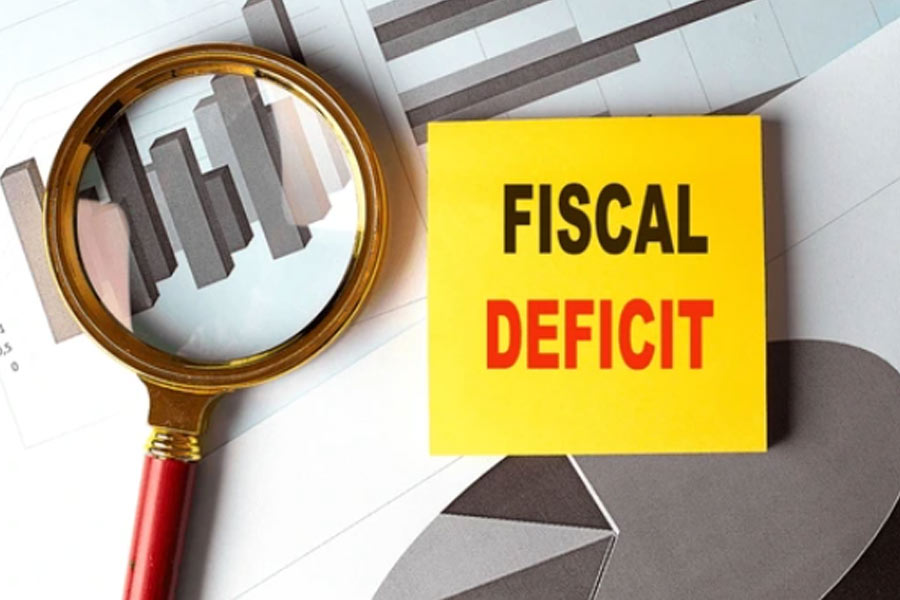The Supreme Court on Thursday agreed to take up for “urgent hearing” a petition challenging the constitutional validity of the anti-terror law UAPA in the wake of it being used against advocates and journalists for their social media posts on the communal violence in Tripura.
The Unlawful Activities (Prevention) Act, among other things, bars the benefit of even anticipatory bail to an accused, the petitioners told the Supreme Court.
The bench of Chief Justice of India N.V. Ramana and Justices A.S. Bopanna and Hima Kohli assured advocate Prashant Bhushan that the matter would be taken up on priority after the counsel sought urgent hearing on behalf of the three petitioners — advocates Mukesh Gaur and Ansarul Haq Ansari and journalist Shyam Meera Singh.
The three have been booked under the UAPA and the Indian Penal Code for their social media posts on the recent violence that followed a VHP protest against the attacks in Bangladesh on Hindus during Durga Puja. Gaur and Ansari had been part of a fact-finding team to Tripura.
The petitioners pleaded that the vagueness of the definition of “unlawful activity”; the “wide net” the law casts on freedom of speech and expression; its tendency to bring within its fold mere criticism of government policies or actions that have no effect on public order or the security, sovereignty and integrity of India; and its indiscriminate use against those critical of the government produces a “chilling effect” on the freedom of speech and expression.
They also underlined that Section 45(d)(4) of the 1967 act bars anticipatory bail while Section 45(d)(5) makes it almost impossible to secure bail. According to the petitioners, the UAPA violates Articles 14 (equality before the law and equal protection of law), 19(1)(a) (freedom of speech and expression) and 21 (protection of life and personal liberty) of the Constitution.
The petitioners said they were seeking protection of their fundamental rights against the backdrop of “targeted political violence against the Muslim minorities in the state of Tripura during the second half of the month of October, 2021, and the subsequent efforts by the state of Tripura to monopolise the flow of information and facts emanating from the affected areas by invoking provisions of the Unlawful Activities (Prevention) Act, 1967, against members of civil society, including advocates and journalists who have made the effort to bring facts in relation to the targeted violence in the public domain”.
The petitioners added that if the government was allowed to criminalise the very act of fact-finding and reporting, that too under the stringent provisions of the UAPA, the only facts that would come out in the public domain were those that were convenient to the State.
“If the quest for truth and reporting thereof itself is criminalised, then the victim in the process is the idea of justice. Such circumstances strike at the very foundations of a participative democratic society as it curbs the ‘free flow of information and ideas’ and no inconvenient facts will be available in the public domain for the citizenry to demand ‘corrective action’ from the State where there have been shortcomings and lapses on its part,” the petition stated.
It was submitted that around October 14, after reports emerged from Bangladesh of attacks on Durga Puja pandals, “in a perverse counterblast, political Right-wing forces in the state of Tripura started fomenting religious passions against the Muslim minorities”.
The petitioners said that the Right-wing political forces organised processions in Tripura to ostensibly protest against the violence in Bangladesh but it led to the targeting of Muslims in the state.
Arson, looting and violence were orchestrated on the establishments of Muslim citizens, and mosques faced attacks and arson at various places in Tripura, the petition said.
It was submitted that a four-member fact-finding team of advocates, including Gaur and Ansari, had visited some of the affected areas between October 30 and November 1. On the basis of their interactions with the affected people and their visits to the mosques that had been targeted, the team on November 2 put in the public domain a report titled “Humanity Under Attack in Tripura #Muslim Lives Matter”.
The next day, an FIR was registered at West Agartala police station under IPC sections dealing with provoking breach of peace, forgery and criminal conspiracy, and the UAPA.
The petitioners said this was “ex facie an attempt to curb the free flow of information from the riot-affected areas given that there is nothing in the report which even remotely supports any secessional activity, or questions the sovereignty or territorial integrity of India, or causes any disaffection against the State of India”.
They submitted that the components of the definition of “unlawful activities” under UAPA Section 2(1)(o) were not even remotely made out. Their report does not exaggerate any of the facts and accurately documents what was learnt and seen by the fact-finding team, the petitioners said.
“It only corroborates with further specifics and in greater detail what has also been broadly reported by national and international media. The report and contents thereof do not fall within any of the restrictions on freedom of speech and expression under Article 19(2) of the Constitution of India and is covered by Article 19(1)(a) of the Constitution of India,” the petition said.
“The absurdity is further compounded by the fact that though the FIR refers to 102 social media posts which are alleged to have intended to cause communal disharmony and intended to cause disaffection against the State; and the notice under Section 41(a) calls upon the Petitioners No. 1 & 2 to delete the offensive posts —no post actually referred to in the FIR have in fact been made by the Petitioners No. 1 & 2,” it added.
“It is submitted that the impugned definition of ‘unlawful activities’ prohibits an innocuous speech by threat of punishment. It casts a ‘wide net’ on freedom of speech and expression and makes even possession of documentational literature, reporting of information, expression of ideas, thoughts, and discussions which are no threat to the security of India and have no tendency to create public disorder punishable under Section 13 of the Act.
“The overbroad language of the section leaves open the possibility that the person criticising measures of government or acts of public officials might also come within the ambit of the penal section. Further, the impugned section abridges the right to free speech and expression in the absence of tangible and proximate harm. The definition fails to define criminal offence with sufficient definiteness and is so ‘vague’ so as to make its application dependent solely on the discretion of police machinery,” the petitioners said.











